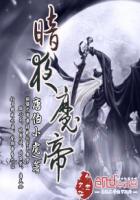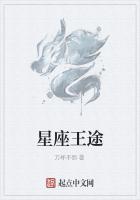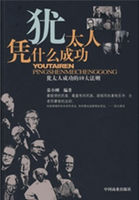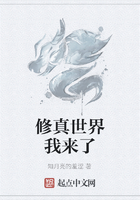Let it be said that coarseness was 'the fashion of the age.' The simple question is, was it a good fashion or a bad? It is said--with little or no proof--that in simple states of society much manly virtue and much female purity have often consisted with very broad language and very coarse manners. But what of that? Drunkards may very often be very honest and brave men. Does that make drunkenness no sin? Or will honesty and courage prevent a man's being the worse for hard drinking? If so, why have we given up coarseness of language? And why has it been the better rather than the worse part of the nation, the educated and religious rather than the ignorant and wicked, who have given it up? Why? Simply because this nation, and all other nations on the Continent, in proportion to their morality, have found out that coarseness of language is, to say the least, unfit and inexpedient; that if it be wrong to do certain things, it is also, on the whole, right not to talk of them; that even certain things which are right and blessed and holy lose their sanctity by being dragged cynically to the light of day, instead of being left in the mystery in which God has wisely shrouded them. On the whole, one is inclined to suspect the defence of coarseness as insincere. Certainly, in our day, it will not hold. If any one wishes to hear coarse language in 'good society' he can hear it, I am told, in Paris: but one questions whether Parisian society be now 'under the sway of a more energetic principle of virtue' than our own. The sum total of the matter seems to be, that England has found out that on this point again the old Puritans were right. And quaintly enough, the party in the English Church who hold the Puritans most in abhorrence are the most scrupulous now upon this very point; and, in their dread of contaminating the minds of youth, are carrying education, at school and college, to such a more than Puritan precision that with the most virtuous and benevolent intentions they are in danger of giving lads merely a conventional education,--a hot-house training which will render them incapable hereafter of facing either the temptations or the labour of the world. They themselves republished Massinger's 'Virgin Martyr,' because it was a pretty Popish story, probably written by a Papist-- for there is every reason to believe that Massinger was one--setting forth how the heroine was attended all through by an angel in the form of a page, and how--not to mention the really beautiful ancient fiction about the fruits which Dorothea sends back from Paradise--Theophilus overcomes the devil by means of a cross composed of flowers. Massinger's account of Theophilus' conversation will, we fear, make those who know anything of that great crisis of the human spirit suspect that Massinger's experience thereof was but small: but the fact which is most noteworthy is this--that the 'Virgin Martyr' is actually one of the foulest plays known. Every pains has been taken to prove that the indecent scenes in the play were not written by Massinger, but by Dekker; on what grounds we know not. If Dekker assisted Massinger in the play, as he is said to have done, we are aware of no canons of internal criticism which will enable us to decide, as boldly as Mr. Gifford does, that all the indecency is Dekker's, and all the poetry Massinger's. He confesses--as indeed he is forced to do--that 'Massinger himself is not free from dialogues of low wit and buffoonery'; and then, after calling the scenes in question 'detestable ribaldry, 'a loathsome sooterkin, engendered of filth and dulness,' recommends them to the reader's supreme scorn and contempt,--with which feelings the reader will doubtless regard them: but he will also, if he be a thinking man, draw from them the following conclusions: that even if they be Dekker's--of which there is no proof--Massinger was forced, in order to the success of his play, to pander to the public taste by allowing Dekker to interpolate these villanies; that the play which, above all others of the seventeenth century, contains the most supralunar rosepink of piety, devotion, and purity, also contains the stupidest abominations of any extant play; and lastly, that those who reprinted it as a sample of the Christianity of that past golden age of High-churchmanship, had to leave out one-third of the play, for fear of becoming amenable to the laws against abominable publications.
No one denies that there are nobler words than any that we have quoted, in Jonson, in Fletcher, or in Massinger; but there is hardly a play (perhaps none) of theirs in which the immoralities of which we complain do not exist,--few of which they do not form an integral part; and now, if this is the judgment which we have to pass on the morality of the greater poets, what must the lesser ones be like?
Look, then, at Webster's two masterpieces, 'Vittoria Corrombona' and the 'Duchess of Malfi.' A few words spent on them will surely not be wasted; for they are pretty generally agreed to be the two best tragedies written since Shakspeare's time.
The whole story of 'Vittoria Corrombona' is one of sin and horror.
The subject-matter of the play is altogether made up of the fiercest and the basest passions. But the play is not a study of those passions from which we may gain a great insight into human nature.
There is no trace--nor is there, again, in the 'Duchess of Malfi'--of that development of human souls for good or evil which is Shakspeare's especial power--the power which, far more than any accidental 'beauties,' makes his plays, to this day, the delight alike of the simple and the wise, while his contemporaries are all but forgotten. The highest aim of dramatic art is to exhibit the development of the human soul; to construct dramas in which the conclusion shall depend, not on the events, but on the characters; and in which the characters shall not be mere embodiments of a certain passion, or a certain 'humour': but persons, each unlike all others; each having a destiny of his own by virtue of his own peculiarities, and of his own will; and each proceeding toward that destiny as he shall conquer, or yield to, circumstances; unfolding his own strength and weakness before the eyes of the audience; and that in such a way that, after his first introduction, they should be able (in proportion to their knowledge of human nature) to predict his conduct under those circumstances. This is indeed 'high art': but we find no more of it in Webster than in the rest. His characters, be they old or young, come on the stage ready-made, full grown, and stereotyped; and therefore, in general, they are not characters at all, but mere passions or humours in human form. Now and then he essays to draw a character: but it is analytically, by description, not synthetically and dramatically, by letting the man exhibit himself in action; and in the 'Duchess of Mall' he falls into the great mistake of telling, by Antonio's mouth, more about the Duke and the Cardinal than he afterwards makes them act. Very different is Shakspeare's method of giving, at the outset, some single delicate hint about his personages which will serve as a clue to their whole future conduct; thus 'showing the whole in each part,' and stamping each man with a personality, to a degree which no other dramatist has ever approached.
But the truth is, the study of human nature is not Webster's aim. He has to arouse terror and pity, not thought, and he does it in his own way, by blood and fury, madmen and screech-owls, not without a rugged power. There are scenes of his, certainly, like that of Vittoria's trial, which have been praised for their delineation of character: but it is one thing to solve the problem, which Shakspeare has so handled in 'Lear,' 'Othello,' and 'Richard the Third,'--'Given a mixed character, to show how he may become criminal,' and to solve Webster's 'Given a ready-made criminal, to show how he commits his crimes.' To us the knowledge of character shown in Vittoria's trial scene is not an insight into Vittoria's essential heart and brain, but a general acquaintance with the conduct of all bold bad women when brought to bay. Poor Elia, who knew the world from books, and human nature principally from his own loving and gentle heart, talks of Vittoria's 'innocence--resembling boldness'















